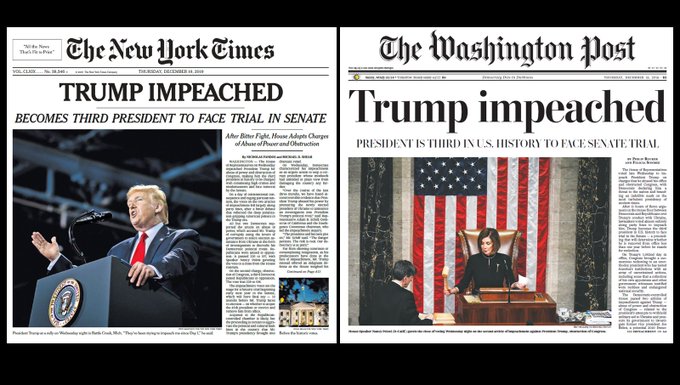Impeachment
The moment of triumph:
Chock-full of the razor-sharp prose and bloodlust that made stories impossible to put down
Ok, so I was able impose on some friends to do some heavy lifting…see previous post. However I could not leave this dustbin of history without a few digressive remarks, putatively about words and literature and my current existential crisis
…that these lists would benefit from getting rid of the ‘best’ tag. It’s not that I don’t believe some books are better than others; it’s just that I don’t believe we adequately express our love when we invoke criterions of betterness; and that such claims are frankly absurd when each individual is drawing from such a small, subjective pool.**Books of the Year lists are a key factor in the spread of blurbese: a language written in a register completely separate from actual spoken word-of-mouth recommendations. In 2015, when I was first asked to write a few lines about my Books of the Year, I found myself typing words like “haunting”, “lyrical”, “exquisite”, “innovative”, “poignant” “handsome” and the kind of phrases that I would usually strike out of a work of fiction: “bowled over”; “blown away”; “left dazzled by”. I heard the Song of Praise, and I duly danced the steps.I am not naive enough to think that the writing industry can exist outside of the machinations of capitalism, but I do think these kind of lists are in a ragged service to a skewed, misguided market-logic whereby literary “product” values are something measurable and commensurable—and inherently related to newness. And it is disappointing to me that we all—in trying to recommend good books that we genuinely like—do so by participating in a narrative that most of us surely don’t really go along with. …
Oliver Sacks did psychoanalysis twice weekly, at dawn, for 50 years. “I think we’re finally getting somewhere,” he said, shortly before he died
Isaiah Berlin produced political theory for real people, showing that humanity itself is the main barrier to making the world a better place... BERLIN
The Truth About Facts (And Checking Them)

The great truth of fact-checking: while facts are sacred to writers, readers, and, above all, editors, they are sometimes more work than they’re worth. The importance of fact-checking—particularly when it comes to inconsequential detail—is based on the long-held theory that if you’re fastidious about the little things, the reader will trust you with the big things. But the history of fact-checking suggests that too often, the accumulation of verifiable minutiae can become an end unto itself. – Columbia Journalism Review
Progressives Blast New NLRB Union Elections Rule That ‘Betrays the Workers It Is Meant to Protect’ Common Dreams
Canadian Literary Juries Struggle With Balance Between Politics And Art
“(Literature) should not be reduced to politics, obviously, because human experience is more than politics. But also, human experience is never without politics.” – Toronto Star
Magnus now #1 (!) in fantasy football
Marriage Story is an excellent film on many levels, including but not only L.A. vs. NYC, furthermore it offers running commentary on Bergman’s Scenes from a Marriage (my favorite movie ever?) and the Bergman/Ullmann story itself.
Men and women are different. A seemingly obvious fact to most of humanity but a long-time subject of controversy within psychology. New large-scale results using better empirical methods are resolving the debate, however, in favor of the person in the street. The basic story is that at the broadest level (OCEAN) differences are relatively small but that is because there are large offsetting differences between men and women at lower levels of aggregation. Scott Barry Kaufman, writing at Scientific American, has a very good review of the evidence:
At the broad level, we have traits such as extraversion, neuroticism, and agreeableness. But when you look at the specific facets of each of these broad factors, you realize that there are some traits that males score higher on (on average), and some traits that females score higher on (on average), so the differences cancel each other out. This canceling out gives the appearance that sex differences in personality don’t exist when in reality they very much do exist.For instance, males and females on average don’t differ much on extraversion. However, at the narrow level, you can see that males on average are more assertive (an aspect of extraversion) whereas females on average are more sociable and friendly (another aspect of extraversion). So what does the overall picture look like for males and females on average when going deeper than the broad level of personality?On average, males tend to be more dominant, assertive, risk-prone, thrill-seeking, tough-minded, emotionally stable, utilitarian, and open to abstract ideas. Males also tend to score higher on self-estimates of intelligence, even though sex differences in general intelligence measured as an ability are negligible [2]. Men also tend to form larger, competitive groups in which hierarchies tend to be stable and in which individual relationships tend to require little emotional investment. In terms of communication style, males tend to use more assertive speech and are more likely to interrupt people (both men and women) more often– especially intrusive interruptions– which can be interpreted as a form of dominant behavior.


